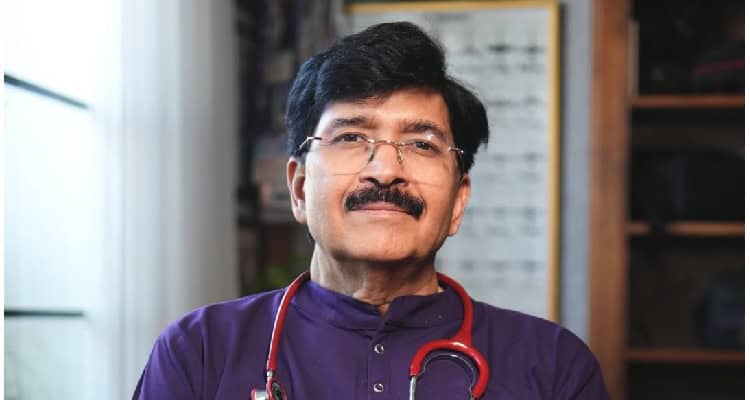Dr Ravi Malik, Director, Malik Radix Healthcare, describes how the future of Indian healthcare depends on making medicine a respected, lucrative, and future-ready profession once more
 Dr Ravi Malik, Director, Malik Radix Healthcare
Dr Ravi Malik, Director, Malik Radix Healthcare
India’s healthcare system is one of the largest in the world, but it comes with a lot of complexities. Looking ahead to the next generation of doctors, we can see many challenges. There is a huge rise in lifestyle diseases, increasing cases of cancer being diagnosed, the ongoing threat of pandemics, and a shortage of doctors in rural areas.
As per the projections of the National Centre for Disease Informatics and Research (1), India will witness a rise in cancer cases from 26.7 million DALYs (adjusted mortality to incidence) in 2021 to 29.8 million in 2025, with the highest burden in the north and northeast regions.
At the same time, there is a noticeable lack of interest among families in encouraging their children to pursue medicine as a career.
While India has managed to achieve a doctor-patient ratio of 1:1000 as per the WHO standard, the number does not reflect reality when it comes to rural India, where there is still a big gap.
Why are students not choosing to become doctors?
There are many reasons for the lack of interest in pursuing medicine. First, the career takes a long time to build and is very demanding in nature. It takes roughly five and a half years to get an MBBS degree, followed by post-graduation and a few years as a senior resident before beginning independent practice at the age of 30. That is why many doctors in India end up working long hours to cover their costs, which adds a lot of stress and affects their health. Studies show that Indian doctors tend to have a shorter life expectancy than the average person, likely because of the high pressure they face. On top of that, violence against doctors has become an increasing problem, which makes many young people think twice before choosing this profession.
Over the years, the respect that doctors used to enjoy in society has declined. With the growth of corporate hospitals, especially in cities, doctors often lose some of their independence; they’re treated more like employees than as independent professionals or business owners. This is why the profession does not feel the way it used to.
Challenges of rural healthcare
No proper infrastructure is the biggest reason why rural healthcare in India faces significant challenges. Doctors in these areas are often faced with issues in providing quality care to the people, leading to unfulfillment as a professional. Limited access to education, food, safety, and few career growth opportunities are a few reasons why attracting and retaining skilled doctors in rural regions is difficult, which leads to a lower standard of healthcare for the local population.
Doctor exodus and brain drain
Another big challenge in the Indian healthcare sector is that many doctors are moving abroad, as other countries like the US, UK, Australia, Canada, or the Middle East offer better pay, safer and more supportive work environments, better infrastructure, and more opportunities for academic growth and respect. The studies (2) reveal that India is the largest exporter of doctors among low-income countries, and 8.9 per cent of all doctors registered with the UK’s General Medical Council are from India.
To deal with this issue, it is imperative that we work towards improving the healthcare sector. This will include making working conditions better, investing in infrastructure, and restoring the respect and dignity that doctors deserve. If we fail to do so, India will keep losing on their skilled medical professionals to other countries, which can in turn create a big gap in the Indian healthcare sector.
Revamping medical education
The world is changing fast, and we need to keep up with its pace. The current syllabus in medical schools feels outdated and doesn’t help the medical students with the challenges healthcare faces today.
The doctors of tomorrow need more than just medical knowledge. They must be equipped with skills like communication, emotional intelligence, leadership, and teamwork. One cannot imagine a world without technology; therefore, the medical community has to evolve and embrace these technologies at its own pace as well.
A general physician or a paediatrician does not need to know about the anatomy like a surgeon or an orthopaedic surgeon needs to know. So, there is a need to revisit how we teach when it comes to specialising courses.
Looking ahead
The future of Indian healthcare depends on making medicine a respected, lucrative, and future-ready profession once more. By making education more contemporary, incorporating technology, and developing young doctors’ leadership, communication, and entrepreneurial skills, we will make the doctors of tomorrow ready to bridge rural-urban divides, combat disinformation, and drive innovation in the healthcare sector. By investing in infrastructure, improving working conditions, and returning respect to the profession, we can encourage the next generation to choose medicine, not as an option, but as a choice to contribute to the country’s well-being.
References:
- https://ncdirindia.org/display/wcd.aspx
- https://drive.google.com/file/d/1l2nI3NULdQot2tPTjP4MjfegJZP0QMQ_/view?usp=sharing